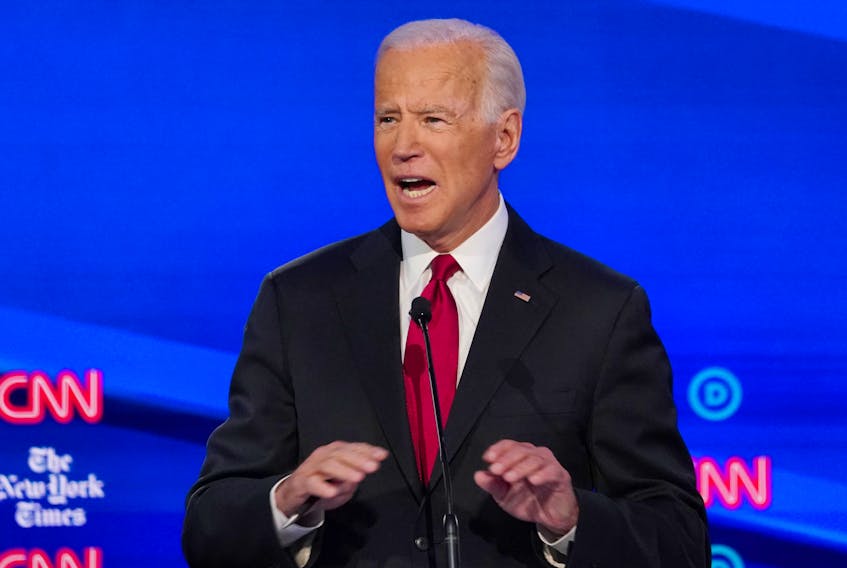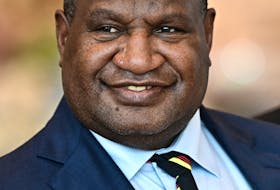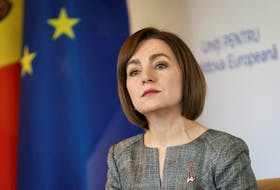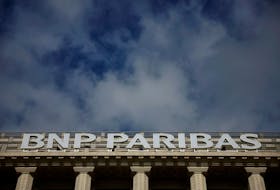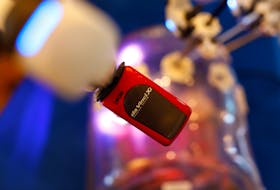By Ginger Gibson and Grant Smith
WASHINGTON/NEW YORK (Reuters) - Former U.S. Vice President Joe Biden had $9 million in his campaign bank account at the end of September, significantly less than his top rivals in the race for the 2020 Democratic presidential nomination, data released on Tuesday showed.
While Biden leads most national public opinion polls, he has struggled to raise money and is relying heavily on wealthy donors who can write five-figure checks instead of smaller donations made via the internet.
Biden dismissed that his low cash balance is going to be a problem going forward, saying that his campaign launched after several others, forcing him to catch up to his rivals.
"Our fundraising is building," Biden told reporters in Ohio on Wednesday. "We've raised a lot of money online and we've raised money offline as well. So we feel confident we're going to be ready."
Biden raised $15.7 million in the third quarter, according to disclosures filed to the Federal Election Commission. That placed him fourth in fundraising for the period among the 19 candidates seeking to become the Democratic nominee to challenge Republican President Donald Trump in the November 2020 election.
Biden also spent more than he raised over the July to September quarter, resulting in a burn rate of 112%. Candidates with high burn rates - the pace at which they are spending their campaign funds - can be forced to make tough choices if they run out of cash.
U.S. Senator Elizabeth Warren, who has emerged in opinion polls as Biden's chief rival for the nomination, has excelled at raising money online and finished September with $25.7 million in cash. Warren's burn rate for the quarter was 76% - the lowest of the five leading Democratic candidates.
Biden pointed out that Warren - and other senators running - were able to transfer money from their old campaign accounts to get a head start.
"We did not start off by dropping $10 million from a Senate campaign, wherever that money was raised from, into a race," he said.
Spending decisions for a presidential campaign can be critical before voting begins in state nominating contests.
Candidates who spend too much can find themselves without enough cash to pay staff or purchase advertisements as voters head to the polls. However, a candidate who does not spend enough can miss the opportunity to build name recognition and bolster support.
Trump, who launched his reelection campaign the day he took office and has been able to raise money since then, had the lowest burn rate at 35% and finished the quarter with $83 million in cash.
Of the Democratic candidates polling in the top five, only Senator Kamala Harris spent at a higher rate than Biden during the third quarter, but she managed to finish with more cash. She finished the third quarter with $10.5 million despite spending at a 123% rate during the three months.
Senator Bernie Sanders raised the most money of any Democratic candidate during the third quarter, hauling in $28 million in largely online donations, allowing him to finish September with the most cash.
Democrat Tom Steyer, a billionaire who put $47.6 million of his own money into his campaign in the third quarter, raised a further $2 million from donors. Steyer spent $47 million in the quarter, more than double the amount of cash spent by any other Democratic or Republican candidate, including Trump.
Steyer's use of his personal funds to fuel his campaign drew criticism from rival Steve Bullock, the governor of Montana who was unable to qualify for Tuesday night's debate and has struggled to gain traction in the polls.
“The way to get rid of Big Money in politics is not more Big Money in politics,” Bullock wrote on Twitter in response to details about Steyer's spending.
Candidates focused their spending on salary, investing in staff in early primary and caucus states who are key in trying to organize supporters to win votes in heavily contested areas, the data showed.
Before this quarter, Warren had outpaced her rivals on payroll spending. She spent $5.3 million on salary in the third quarter, more than twice what she spent in the first two quarters combined. For the year, Warren spent $9.1 million on salary plus $4 million in payroll taxes.
Sanders caught up to Warren on staff spending in the third quarter. His third-quarter payroll was $5.7 million, bringing his total payroll for the year to $8.7 million.
Biden spent $4.5 million on salaries and another $1.3 million for advertising in the third quarter.
Pete Buttigieg, the mayor of South Bend, Indiana, was the only Democratic candidate who did not list salary as his largest single spending category in the quarter. He spent $4.4 million in online advertising and $3.6 million on salary, a shift from the previous quarter, when he spent little on advertising.
(Graphic: U.S. presidential election fundraising - https://fingfx.thomsonreuters.com/gfx/editorcharts/USA-ELECTION-FUNDRAISING/0H001QEJK7CL/index.html)
(Reporting by Ginger Gibson in Washington and Grant Smith in New York; Additional reporting by Doina Chiacu, Sharon Bernstein and Trevor Hunnicutt; editing by Bill Berkrot and Nick Zieminski)

